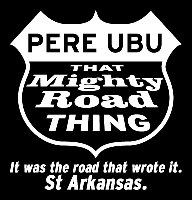

 |
 |
 |
This Week's
|
Thursday, November 10, 2005
Qs 2
 I was in Tower last night purchasing the new CD by my once Goddess (and Goddess again? I feel the spell welling, but, as always, am queasy to judge under the thrall of spells). As I was browsing, I saw the current edition of Gramophone magazine, and, thumbing though it there, and then later at home since I bought it, I got to wondering. I fully understand that the purpose of music mags, from Gramophone to Rolling Stone, is to push product. And it seems to me that every issue I see of Gramophone - not that I subscribe and see every one - announces new award winners, new best of year, new best choral or best chamber. And hardly anything gets panned, at least in this issue. What is the general opinion of Gramophone? How reliably independent is it from recording companies? Payola = great review, rewards? Is it particularly good at reviewing particular periods or genres? Is it good at reviewing music that interests the readers of S21? And are there particular reviewers writing in Gramophone that are especially shrewd, whose judgments are considered sound? Also, Sir Arnold Bax: a friend is urging his symphonies, especially #2, on me - I should be getting a copy of #2 this weekend. Thoughts? OH! Judith Shatin - just heard a couple of very short pieces over on Iridian Radio. Impressed. Totally new to me. Who she? Friday update: Paul Dresher?
This Week's Top Picks 2
 In 1980 I attended a show at DC's first 930Club. The headliner of the sold-out show was the long-forgotten Human Switchboard, and the opening act was the producer of Human Switchboard's first ep, David Thomas, the heart, brains, and (some of his ex-bandmates would say) the asshole of Pere Ubu. Thomas, frumpy, grumpy, fat and sweating, stood defiantly on midstage and improvised free verse. No band, no music. Free verse. He was mercilessly taunted off the stage. I had gone to see Thomas. Pere Ubu was and is one of my indispensible bands. They influenced, back in the late 1970s, my cultural politics as much as my musical tastes. Their unblinking examination of industrial America and the lives of industrial America's workers in combination with music riveting in its confrontational soundscape I found uncompromisingly original, urgent, anthemic, and energizing. The first five albums (collected now in the box set over on the left, *Datapanik in the Year Zero*) I think are essential listening both for their own sake but also to understand the wellspring from which flowed bands such as Fugazi and Dismemberment Plan and Guided by Voices. In the late 80s, early 90s, Thomas led them in a much more melodic direction, and albums such as *Story of My Life* and *Worlds in Collision* and (especially) *Cloudland* show Thomas working on introducing pop elements into his music, focusing on the quirkiness of hooks, in essense exploring both what's fascinating and what's terrifying about the concept and marketing and manipulation of hooks. Though the songs are brighter and less menacing than the early work, they are more ominous in that they are concerned not as much with the industrial environment in which we live as how those who run that environment indoctrinate us into and innoculate us from that environment. The later albums, starting with *Raygun Suitcase* and running through the latest, *St Arkansas,* is a melding of all that came before, and are remarkable cultural period pieces as well as totally original music. They sound like all that came before and totally new, and the inventions and complications and implications of technology's exponential growth and influence over our lives - as industrial America continues to decline - has given Thomas, the musician and poet, new impetus. Word is that they are now in studio recording their next album, tentatively titled *Electricity* and tentatively scheduled for release next September. BTW: I hope to alternate Top Picks between new releases and my own idea of essential music. Though who knows? This is all new. BDR
Ashbery, cont (briefly, tangentially) Speaking of chance, in the latest edition of the New York Review of Books there's a review written about James Schuyler's collected letters here (I've copied the link after getting through with my password; hopefully the complete article will come up when the link is clicked). Some of the letters are to Ashbery, and many cover the time of the founding of the so-called New York School. What I find particularly interesting in the article are Schuyler's biting comments about Richard Wilbur and Anthony Hecht (who I knew, had as a teacher, and deeply admire as a poet). Perhaps someone can comment, but I imagine the same battles that were waged between poets over form, formalism, and the direction of new poetry were the same that were being waged between musicians and composers then, now, forever. |